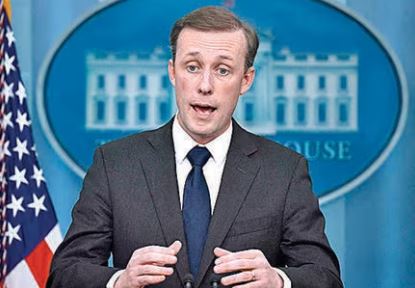
Prime Minister Narendra Modi’s upcoming State visit to the US will be defined by substantive outcomes in defence, high-technology, economic cooperation, and deeper people-to-people ties between the two countries, President Joe Biden’s national security adviser (NSA) Jake Sullivan has said. While both countries will also seek to develop a common understanding about China’s actions and, “as best as possible”, attempt to coordinate and align actions around it, Sullivan said that the bilateral relationship is neither a “marriage of convenience” nor a “geopolitical bargain” but a relationship founded on goodwill between people, private sectors, academia, and governments on both sides.
In an exclusive interview to HT, Sullivan also said that the Initiative on Critical and Emerging Technologies (iCET) is “foundational, fundamental, and critical” since both India and the US believe that harnessing emerging technologies is key to the future of their societies, economies and security sectors. Suggesting that the “sky is the limit” for cooperation in these domains, Sullivan asked observers to judge Delhi and Washington DC by the outcomes “in terms of actually delivering on the promise of iCET in real research partnerships, real supply chain shifts, real cooperation to produce the next generation technologies for 5G and 6G, and for harnessing artificial intelligence for positive outcomes”.
The US NSA, who articulated a new vision of geoeconomics in a recent speech, said that India fits into the US vision in three ways — in terms of supply chain diversification, partnership on emerging technologies, and reform of multilateral development banks (MDBs) and addressing debt crises that have engulfed many countries. Referring to India’s leadership on MDBs and debt, as G20 president, Sullivan added, “We are looking to help make India’s G20 presidency a landmark G20 presidency on both of these issues. And so, when I think about what our international economic strategy is, the economic partnership between the US and India lies at the heart of it.”
Sullivan is one of Biden’s closest aides and has driven the US administration’s approach towards Ukraine, the Indo-Pacific, geoeconomics and technology in the past two years. He is also seen as the central figure who has given momentum to the India-US relationship with his leadership of iCET, along with India’s NSA, Ajit Doval. Sullivan visited India last week, where he met Modi, Doval and external affairs minister S Jaishankar to firm up deliverables for the state visit. In the interview, Sullivan spoke about the US commitment to enhancing India’s manufacturing capacity as well as co-production in the domain of defence in India.
When asked how much are shared anxieties about China driving the India-US relationship, Sullivan said, “Both President Biden and PM Modi view the US-India relationship more through the lens of the opportunities it presents than through the threats and challenges it needs to worry about or ward off. The positive agenda, the agenda around building a shared technology ecosystem of trust, around diversified resilient supply chains, around the US and India working together to help the world solve significant problems from climate and food security to poverty – that is much more motivating in the gathering strength of the US-India relationship than the concerns or threats that we see.” He added that the “ballast” in ties came from how people in both countries had a “fundamentally optimistic” view about the other country as a partner. “So this is not some kind of geopolitical bargain or marriage of convenience against a common threat.”
At the same time, he acknowledged that China will figure in the conversations during the State visit. “What we have tried to do is develop a common understanding of the concerns that each of our countries have about actions and activities of the PRC (People’s Republic of China) and then as best as possible, to coordinate and align how we are dealing with those concerns. But as I said before, I think that is not the overriding or dominant feature even if it is the one that people tend to like to write about.”
Sullivan also spoke of how India fit into the US’s national security vision and said deepening defence ties was in the US’s interest. “And that means contributing to efforts in co-production on important defence technologies. And there will be some announcements in that regard associated with the state visit. Second, we believe that we need to have a common picture of the geopolitical environment in the Indian Ocean and in the broader Indo Pacific.
That includes maritime domain awareness, intelligence sharing, more joint exercises and the capacity to operate in ways where we understand one another better in terms of our militaries. And so when you put all of those pieces together, we think that there will be as outcomes from the state visit a deeper, more effective, more diverse defence partnership than what we inherited when the Biden administration came into office.”
Sullivan also spoke of his recent meetings in Delhi, where he lauded Modi’s positive focus on India-US ties, especially the tech partnership.

















